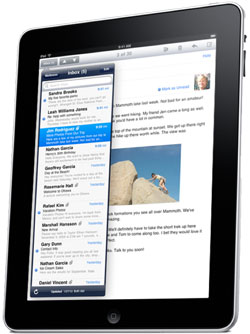
Get the world’s most fascinating discoveries delivered straight to your inbox.
You are now subscribed
Your newsletter sign-up was successful
Want to add more newsletters?

Delivered Daily
Daily Newsletter
Sign up for the latest discoveries, groundbreaking research and fascinating breakthroughs that impact you and the wider world direct to your inbox.

Once a week
Life's Little Mysteries
Feed your curiosity with an exclusive mystery every week, solved with science and delivered direct to your inbox before it's seen anywhere else.

Once a week
How It Works
Sign up to our free science & technology newsletter for your weekly fix of fascinating articles, quick quizzes, amazing images, and more

Delivered daily
Space.com Newsletter
Breaking space news, the latest updates on rocket launches, skywatching events and more!

Once a month
Watch This Space
Sign up to our monthly entertainment newsletter to keep up with all our coverage of the latest sci-fi and space movies, tv shows, games and books.

Once a week
Night Sky This Week
Discover this week's must-see night sky events, moon phases, and stunning astrophotos. Sign up for our skywatching newsletter and explore the universe with us!
Join the club
Get full access to premium articles, exclusive features and a growing list of member rewards.
Government officials warned today that Apple's new iPad device could lead to further congestion on wireless networks such as AT&T, which is already experiencing problems because of heavy iPhone traffic.
A message posted on the Federal Communications Commission's (FCC) blog today read: "With the iPad pointing to even greater demand for mobile broadband on the horizon, we must ensure that network congestion doesn’t choke off a service that consumers clearly find so appealing or frustrate mobile broadband’s ability to keep us competitive in the global broadband economy."
The post was written by Phil Bellaria, director of scenario planning for the government's Omnibus Broadband Initiative, and John Leibovitz, Deputy Chief of the Wireless Telecommunications Bureau.
The pair compared the potential iPad data loads to the infamous problems on the AOL network in 1996 and 1997. When AOL decided to allow unlimited Internet use for dial-up customers, so many people logged on that AOL servers couldn't handle it. Customers had trouble logging on for months afterward.
The Apple iPad received a lot of attention after its announcement last week, but not all of it was positive. One of the biggest complaints many people had was that Apple had chosen AT&T as the primary wireless 3G data provider for the tablet.
The reactions stemmed from AT&T's notoriously problematic coverage for iPhone users who want to browse the Internet on their phones. AT&T allows users to do so wirelessly through their 3G data network, but the network has been unresponsive or slow for many users, especially in large cities such as New York City and San Francisco.
The Apple iPad is designed to be even more data-intensive than the iPhone, leaving many people wondering how AT&T plans to deal with the upcoming data onslaught. Of particular concern is how much additional lag and connection problems the iPad will create and what AT&T is doing to prepare for the additional load.
Get the world’s most fascinating discoveries delivered straight to your inbox.
Mark Siegel, Executive Director of Media Relations for AT&T Mobility, declined to comment on the issue. "We are pleased that apple has chosen our 3G network for the iPad," Siegel told TechNewsDaily.
Apple has also been reluctant to address the issue directly. In an earnings conference call last week, Tim Cook, Chief Operating Officer at Apple, was asked similar questions about AT&T. Most of Cook's response was in praise of AT&T.
"First of all, AT&T is a great partner," Cook said. "We've been working with them since well before we announced the first iPhone. It's important to note they have more mobile broadband usage than any carrier in the world."
Cook later mentioned that AT&T was working on a solution. "…they're making plans to address these [issues]. We've reviewed these plans and we're confident they'll make significant progress towards fixing them."
However, Cook was referring to the problems with the iPhone, not the additional load the iPad will place on the network. "Significant progress" on an existing problem might not prepare the company for the coming iPad.
In the meantime, AT&T has released a free "Mark the Spot" app for the iPhone that lets users report dropped calls and dead zones. This may be an indication that the company is planning to increase capacity in those problem spots so that in April, when the first 3G capable iPads are shipped, its network will be better prepared for it.
 Live Science Plus
Live Science Plus










